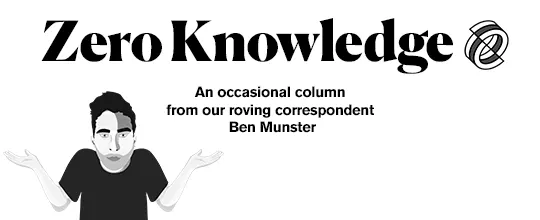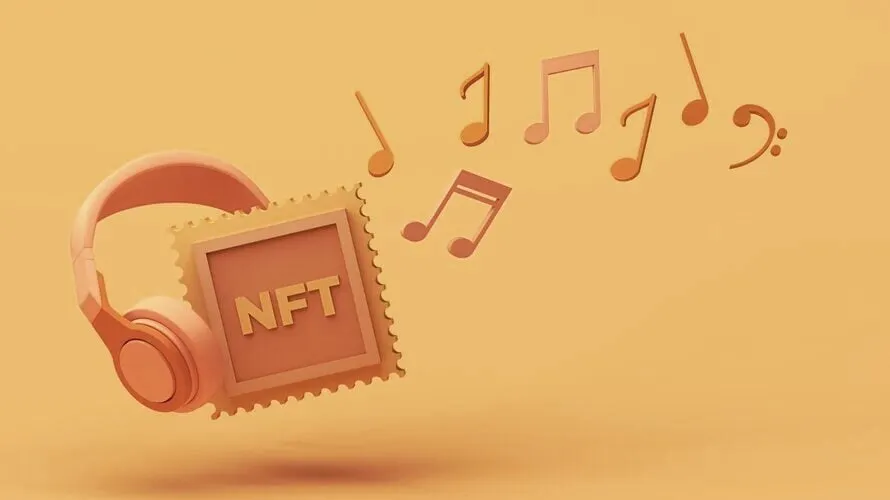
Would you buy an NFT for $1,000? How about for $10?
With the recent staggering losses in the crypto market, speculators have fled the once-frothy NFT market, taking what was left of their money with them. Floor prices for top collections have crashed to earth. Now some people in the industry producing original digital art—as opposed to collectible PFP (profile picture) collections like Bored Apes and CryptoPunks—are attempting to create a grassroots, sustainable business model that has a low bar for entry and doesn’t rely on speculation.
One deceptively simple idea gaining steam: selling NFTs that are cheap.
“We’re producing value out of thin air. It’s alchemy.”
Take Mike Pollard, who in 2021 began work on a marketplace for reasonably priced music NFTs called Nina, now in beta, which he describes as a kind of “crypto Bandcamp.”
“The models being used for selling NFTs, like auctions and bonding curves, along with the high fees on platforms like Ethereum, made it necessary to sell NFTs at high prices,” he told me.
Nina, by contrast, allows musicians to sell tracks at prices they set, without input from rent-seeking intermediaries. The result, Pollard said, is that tracks go for around $10.
Of course, there are still sellers with an outsized sense of their contribution to the art world. “One artist tried to sell a track for $1 million,” he said. “It did not sell.”
By and large, Nina’s artisans are attempting to create a more rational marketplace for their one-of-a-kind digital creations.
Pollard argues that Nina challenges the one-size-fits-all approach taken by platforms like Spotify and Apple Music, which price tracks equally no matter the amount of work put into them. (And needless to say, on those services you’re paying to access a copy of a song, not to own the “original.”)
Nina, explained Pollard, “allows artists to find economic models that suit their audience.” It also suits the fans, who are not put off by volatility or high transaction fees; Nina is built on the lower-fee Solana network.
Jordan Garbis of BeetsDAO, which started as a music NFT collector group, had a similar epiphany. “We’re just looking to return to normal expectations of price and experience,” he told me.
Garbis and BeetsDAO are helping build Echo, a user-owned music-streaming service built around a Discord-esque interface that allows artists to interact with fans. (Disclosure: Garbis is a strategic investor in Decrypt.) Exclusive tracks and various other perks will be awarded to fans for engaging with the platform; Garbis believes that a vast supply of these tokens (“nearly infinite”), and a genuinely appealing use case that discourages reselling, will keep them affordable.
“It should look and feel more like owning music does today,” Garbis said. “Which means millions of plays, and hundreds of thousands of unique fan relationships.”
Each of those relationships can generate a trickle of income that could amount, in the long term, to sustainable business.
Another benefit of selling NFTs on the cheap, Garbis argues, is that it’s more inclusive. He said that previously the desire to keep drops exclusive and command (or indeed contrive) a high price unnecessarily limited artists’ popularity.
And when it comes to that other major corner of the NFT originals, digital artwork, there’s an even bigger problem. Digital art is more easily reproducible than music, which might make digital artwork NFTs more alluring to speculators looking for a big resale. That works when hype is high; not so much when the market is collapsing.
Async Art, a boutique NFT marketplace run by a small staff, gives fans a way to create a kind of grassroots community around the artists they love. It offers NFTs of music tracks and original artworks—much of it psychedelic, oddball, idiosyncratic—as low as $10. It’s a way to supplement an artist’s income—a friendly favor dressed up as a prestige item. And it’s a model that’s actually working, said Achilleas Saradaris, Async’s product manager and a drummer in the band HMLTD (formerly “Happy Meal Ltd”).
Saradaris flicked through images of one of the site’s featured artists, noting that each one sold, but just for a few bucks.
“You can think of it like a vinyl record—something you buy without, necessarily, the hope of reselling it,” he said. “This artist just likes scribbling, and I like his scribbles too, so I host his NFTs so he can keep on scribbling.”
Notably, Saradaris didn’t attempt to talk up any notion of perks or utility. Instead, the pitch of these NFTs is emotional appeal. “We’re producing value out of thin air,” he said. “It’s alchemy.”
Indeed, Saradaris, along with Pollard and Garbis, readily acknowledge that what they’re offering is qualitatively different from the product offered by Web2 titans like Spotify and YouTube, and they know they have no hope of competing at scale with these companies—at least in the short term.
Instead their pitch to fans is to support music and art out of goodwill, in exchange for a sense of ownership or patronage.
Whether this succeeds in moving the NFT market into a sustainable future will depend on how much goodwill the fans really have.

